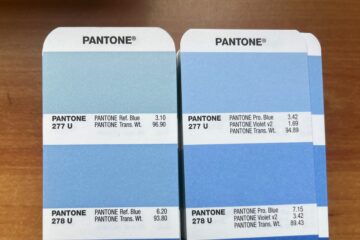When we want to say sorry for an indiscretion or otherwise, we tend to send a card in the post. Although digital or virtual cards have their place, when it comes to a heartfelt apology, only a printed card conveys the right message.
‘We’re sorry for letting your data be exploited’
Facebook has got itself in all sorts of trouble in the past few years, which has likely played a part in agradual decrease in usage. The worst of its problems came in 2018 when millions of Facebook users’ personal data was harvested without consent by Cambridge Analytica to be predominantly used for political advertising.
The initial response to the revelations from Facebook’s founder and CEO, Mark Zuckerberg, was one of silence – it took him five days to address the public. When he finally did, he did so with gusto, taking out full-page adverts in several UK and US newspapers to apologise for the company’s part in the scandal.
“This was a breach of trust, and I am sorry,” the back-page ads stated. “I’m sorry we didn’t do more at the time. We’re now taking steps to make sure this doesn’t happen again,” the tech chief said.
A social media platform turning to print to say sorry says it all, doesn’t it?
‘We’re sorry we ran out of chicken’
While Facebook opted for a tone of contrition, KFC was less sincere in its apology after running out of chicken in its restaurants (remember this story?). But the message was all the better for its humorous delivery, with some commentators calling it a ‘stroke of genius’.
Again, turning to the printed press, KFC grabbed attention with its ‘FCK’ ad, eschewing the usual executive apology on TV, and avoiding the temptation to blame anyone but itself (the fast-food chain had recently changed delivery partners to DHL) for the supply issues.
Guided by the “three Hs” of “humility, humour and honesty” – which could inform any marketing plan, quite frankly – the ad read: “A chicken restaurant without any chicken. It’s not ideal”, before conceding that it had been a “hell of a week” and thanking customers for bearing with it.
The humour helped customers see the funny side and sympathise, rather than demonise, the brand.
Brands saying sorry – how it’s perceived in print
So, why is it, in this digital age, brands and individuals alike turn to print to say sorry? It all comes down to perception and reach.
Speaking to Print Power Europe, Professor Roy J. Lewicki, a leading scholar in the study of conflict management and author of Think Before You Speak: A Complete Guide to Strategic Negotiation, says that an apology in print “can be longer, more complete and very public”.
In contrast, social media can come across as a little knee-jerk and doesn’t always allow a brand to go into any detail due to character limits.
As we touched on at the start of the blog, digital lacks permanence, too. In the Print Power Europe article, Edwin Battistella, professor of humanities and culture at Southern Oregon University and author of Sorry About That: The Language of Public Apology, says that online apologies are “too casual”. Given that the average brand posts on social media several times a day, it’s a fair criticism.
Print also brings “higher trust metrics than social media” and has the ability to reach a “sizable minority” of consumers, speaking to readers in a “newsworthy, trusted and engaged environment”.

